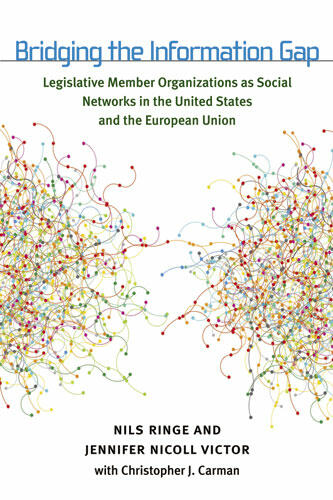Bridging the Information Gap
Legislative Member Organizations as Social Networks in the United States and the European Union
By cutting across party and committee lines, legislative member organizations facilitate the flow of vital information
Description
Legislative member organizations (LMOs)—such as caucuses in the U.S. Congress and intergroups in the European Parliament—exist in lawmaking bodies around the world. Unlike parties and committees, LMOs play no obvious, predefined role in the legislative process. They provide legislators with opportunities to establish social networks with colleagues who share common interests. In turn, such networks offer valuable opportunities for the efficient exchange of policy-relevant—and sometimes otherwise unattainable—information between legislative offices. Building on classic insights from the study of social networks, the authors provide a comparative overview of LMOs across advanced, liberal democracies. In two nuanced case studies of LMOs in the European Parliament and the U.S. Congress, the authors rely on a mix of social network analysis, sophisticated statistical methods, and careful qualitative analysis of a large number of in-depth interviews.
Nils Ringe is Associate Professor of Political Science at the University of Wisconsin–Madison.
Jennifer Nicoll Victor is Associate Professor in the Schar School of Policy and Government at George Mason University.
Christopher J. Carman is the John Anderson Senior Research Lecturer in the School of Government at the University of Strathclyde.
Reviews
“The book aims to develop an understanding of LMOs that exist in many legislatures around the world. . . . It also offers a powerful injection of network ideas into the study of Congress and U.S. politics in general.”
—David Lazer, Northeastern University and Harvard University

